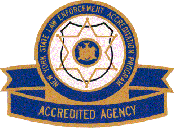In-Service Training
As an accredited agency, training is recognized as a critical facet of the Sheriff's responsibility. The Sheriff's Office Training Coordinator insures a training program which is comprised of two elements:
- Ongoing in-service training, and
- Outside applicable training courses or seminars.
Every deputy sheriff receives a minimum of 21 hours of in-service training each year consisting of topics which include firearms proficiency, use-of-force training, legal issue updates, first aid, AED, computer, and other mandated training.
Certified Police Instructors
Several deputy sheriffs have been trained and certified by the NYS Division of Criminal Justice Services as Police Instructors in specialized instruction and general police topics. They serve as in-service trainers and Police Academy instructors, in addition to their regular assigned duties.
Field Training Officers (FTO)
There are several "seasoned" deputy sheriffs certified as Field Training Officers, often referred to as F.T.O.s. The F.T.O. is assigned a Deputy Sheriff recruit who has graduated from the Basic Police Academy. The FTO trains and evaluates the assigned recruit on a daily basis for a period of ten weeks. Completion of the FTO program is required for "solo" patrol assignment. Therefore, the FTO is a critical component of the police officer training process.
For additional information on training please contact Ken Rice at 716-938-2697 or email at kdrice@cattco.org
Accreditation
 The Cattaraugus County Sheriff's Office received a certificate of accreditation from the New York State Division of Criminal Justice Services in December 2008. The Accreditation Program is comprised of 132 standards and is divided into three categories. Training Coordinator Christa Heckathorn also serves as the agency's Accreditation Manager.
The Cattaraugus County Sheriff's Office received a certificate of accreditation from the New York State Division of Criminal Justice Services in December 2008. The Accreditation Program is comprised of 132 standards and is divided into three categories. Training Coordinator Christa Heckathorn also serves as the agency's Accreditation Manager.
The Administrative section has provisions for such topics as agency organization, fiscal management, personnel practices, and records.
Training standards encompass basic and in-service instruction, as well as training for supervisors and specialized or technical assignments.
Operations standards deal with such critical and litigious topics as high-speed pursuits, roadblocks, patrol, and unusual occurrences.
What are the benefits of being accredited?
The New York State Law Enforcement Accreditation Program enables administrators to strengthen existing procedures while simultaneously creating a solid foundation for the agency's future. The benefits of accreditation include:
- Independent confirmation that policies comply with professional standards
- Assurance of fair recruitment, selection and promotion processes
- Diminished vulnerability to civil law suits and costly settlements
- Enhanced understanding by agency personnel of agency policies and procedures
- Greater administrative and operational effectiveness
- Greater public confidence in the agency
In the final analysis, the impact of the Accreditation Program stems from the profound commitment that New York law enforcement executives have made to professionalism and from their desire to provide the best possible services to the communities that they serve.
Of the 542 Police agencies in NYS, only 141 are accredited, (or 26%), and of those 141, 32 are Sheriff's Offices.
